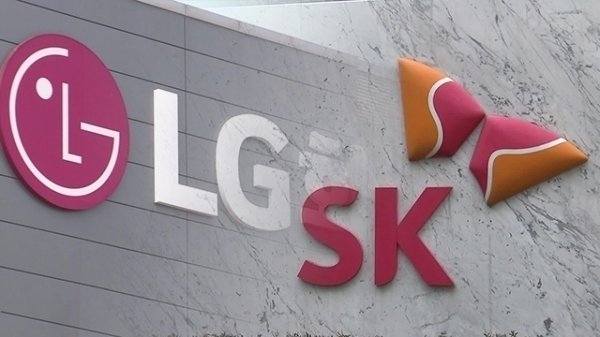The United States International Trade Commission has confirmed publicly that SK Innovation misappropriated 22 trade secrets of its domestic archrival LG Energy Solution while developing electric vehicle batteries.
According to a public document unveiled by the USITC on Thursday (US time), SK’s trade secret theft and destruction of related evidence were planned and organized at a high level, which the commission described as “extraordinary.”
The document backs the US trade panel’s ruling on Feb. 10, which imposed a 10-year ban on SK’s import of lithium-ion battery products to the US.
“It is clear that SKI, without the stolen LG Chem trade secrets, would not have been able to develop the information stolen in anything less than 10 years,” the US institution said. “The very large volume of stolen trade secret documentation and the expertise improperly acquired by SKI from the former LG Chem employees it hired away, would have been beyond the capacity of the much smaller and less experienced SKI R&D department to develop in less than a decade.”
The public version of the ITC documentation was unveiled after SK asked the White House to intervene in its battery fight with LG.
SK gave a presentation to US government officials, which underscored that it might have to abandon a $2.6 billion production base in Georgia, which would jeopardize its plan to create 2,600 new jobs there due to the ITC decision. It called on the US president to veto the decision.
By law, President Joe Biden and the United States Trade Representative have 60 days to review the case and decide whether to veto the USITC decision. But no USITC decision on trade secret cases has ever been overturned.
On Thursday, the commission also said, “SK Innovation’s conduct demonstrates flagrant bad faith in destroying the related documents, excusing that destruction as routine, and otherwise trying to hide that destruction.”
LG Energy Solution held a conference call Friday to provide further explanations of the ITC document.
“Of the 22 trade secrets, the most shocking part was bills of materials,” said an LG official. “The BOM reveals lists of all kinds of materials, sources and prices that LG used.”
Another critical trade secret included information of the entire manufacturing process, the official said.
“Having stolen these secrets, it is deemed that SK has infringed LG’s technologies in nearly all sectors of battery manufacturing,” he said.
After the ITC ruling was made, LG proposed negotiating a settlement, but SK has never responded, LG said.
SK Innovation expressed regret Friday and said it would strongly ask US President Joe Biden to exercise his veto power over the commission’s decision.
“The ITC’s decision threatens to undermine the US national interest in multiple dimensions,” the company said in a statement. “It would harm the US economy by destroying thousands of high-tech green energy jobs. It would frustrate US plans to protect the environment by producing batteries for electric vehicles and stationary storage.”
SK continued, saying, “It would endanger US national security by making us more dependent on Chinese companies in this fast-developing, critically important field. That’s a lot of damage from one decision. Thankfully, it is entirely within the discretion of the Biden administration to undo it.”
The SK affiliate also asserted LG continues to obscure the actual record of the case.
“LG’s carefully crafted statements leave out the fact that no judicial process or legal authority -- including the ITC -- has ever found that SK has ever stolen any of its technology.”
It also argued LG is using the US government to give it an “effective monopoly over production of EV batteries in the US.”
“LG is further manipulating the US government by assuring it that it can increase its capacity to make enough batteries in the US to make up for a ban on SK. This is patently untrue,” the statement said.
Meanwhile, LG has been accelerating its expansion into the US market, eyeing on the growing energy storage system market.
In partnership with GM, the Korean battery maker is planning a $2 billion investment to construct the second factory for EV batteries in Clarksville, Tennessee, near LG Electronics’ washing machine factory.
The forthcoming plant is expected to have a capacity similar to that of the company’s first plant in Ohio, which cost about $2.3 billion and has a total capacity of 30 gigawatt-hours.
By Song Su-hyun (
song@heraldcorp.com)








